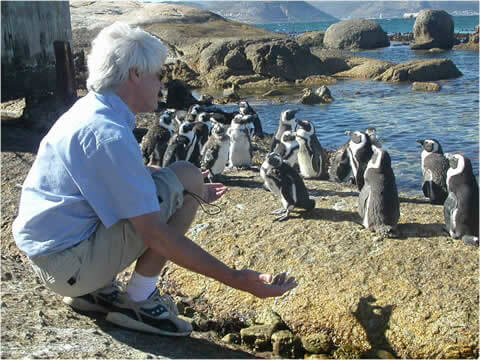4S Mentoring Award 2016: Arie Rip
We are delighted to announce the award of the 2016 Mentoring Award to Professor Arie Rip, Emeritus Professor of Philosophy of Science and Technology, University of Twente, the Netherlands.
The nomination dossiers we received documented a wide array of important mentoring practices that described the ways in which these scholars have:
- crafted the education of novices to facilitate their metamorphosis into fully independent researchers;
- introduced students and scholars to STS at many different career stages, from undergrads though mid-career scholars;
- introduced their own advisees to broader scholarly networks, without concern for credit or publicity;
- guided young people through the complex infrastructures for crafting knowledge;
- built strategic new infrastructures to enable the development of the next generation in new directions;
- exercised leadership in ethical and effective ways;
- brought newcomers into networks that extend beyond departments, disciplines, nations; and
- exemplified human decency and warmth in scholarly communities.
Professor Rip has been a formative figure in STS for over four decades. He has helped shape the field, both through his own scholarship and through the mentoring of generations of STS scholars. He has supervised over fifty PhD students in his career, in addition to numerous masters’ degree students. He has coached and supported many others at various times in their career, even while not credited with a formal advisory role. His mentoring has been a model of attentive listening and constructive criticism, and has continued for a decade beyond his formal retirement from teaching.

In short, Arie Rip has helped establish a new field, developed institutional and pedagogical infrastructures for STS in its relationship to both engineering and policy, and has trained generations of scholars. We feel privileged to award him the 2016 4s mentoring award.
Mentoring Award Committee Members: Kaushik Sunder Rajan, University of Chicago, USA (co-chair); Sharon Traweek, UCLA, USA (co-chair); Sulfikar Amir, Nanyang Technological University, Singapore (Council member); Kim Fortun, Rensselaer Polytechnic Institute, USA; Leandro Rodriguez Medina, Universidad de las Americas Puebla, Mexico; Sally Wyatt, Royal Netherlands Academy, Netherlands.
Acceptance
I am very happy to accept the 4S Mentoring Award, because I always found that this part of my job (I use quotes because it feels more like part of my identity) was very stimulating and rewarding, and I have put quite some effort into it over the years. Still do, actually.
When I moved into STS (after getting my degree in physical chemistry, and a first degree in philosophy) it was because I was invited to be responsible for a new teaching programme in Chemistry and Society at the University of Leiden (this was in 1969, the time of the critical student movement). Together with the senior students who chose Chemistry and Society as an elective I worked on developing the programme while doing it. It was a non-disciplinary effort, like STS at the time. But I always insisted on intellectual quality.
Over the years, I have been blessed by having many bright and interesting master and PhD students. I would still find occasions to comment on what they did, in the details and overall, but in a spirit of constructive criticism, helping them to improve the project they wanted to accomplish. I have also done this for students and junior researchers who were not formally my responsibility: couldn’t resist when I saw there was a need (and receptivity) and I had the capacity to help them.
As Maureen McNeil, in her acceptance note when receiving the first 4S Mentoring Award, emphasized, this award is a relational prize: it builds on the interactions with young (and sometimes older) early researchers in STS. I am grateful to all of them for allowing me the pleasure to include mentoring activities in our mix of interactions. Which interactions often continue, and I am grateful for that as well. And let me add my particular thanks to the two mentees (awful word!) who were responsible for my nomination for the Mentoring Award.
Bio
Arie Rip is emeritus Professor, Philosophy of Science and Technology, at the University of Twente, associated with the Department of Science, Technology and Policy Studies. He studied physical chemistry at the University of Leiden (and did a first degree in philosophy there), then moved into Chemistry and Society teaching and research at the University of Leiden, and science, technology and society teaching and research more generally. He contributed to the setting-up of science dynamics as a particular direction in STS. After being guest professor at the Department of Science Dynamics at the University of Amsterdam (1984-1987), he moved to occupy the Chair in Philosophy of Science and Technology at the University of Twente. He has a record of work in supervising more than fifty PhD students; and in ongoing research in science, technology and innovation dynamics, in particular long-term development of institutions of science, and constructive technology assessment of emerging technologies like nanotechnology; and in consultancy and advice, recently also about responsible research and innovation.

